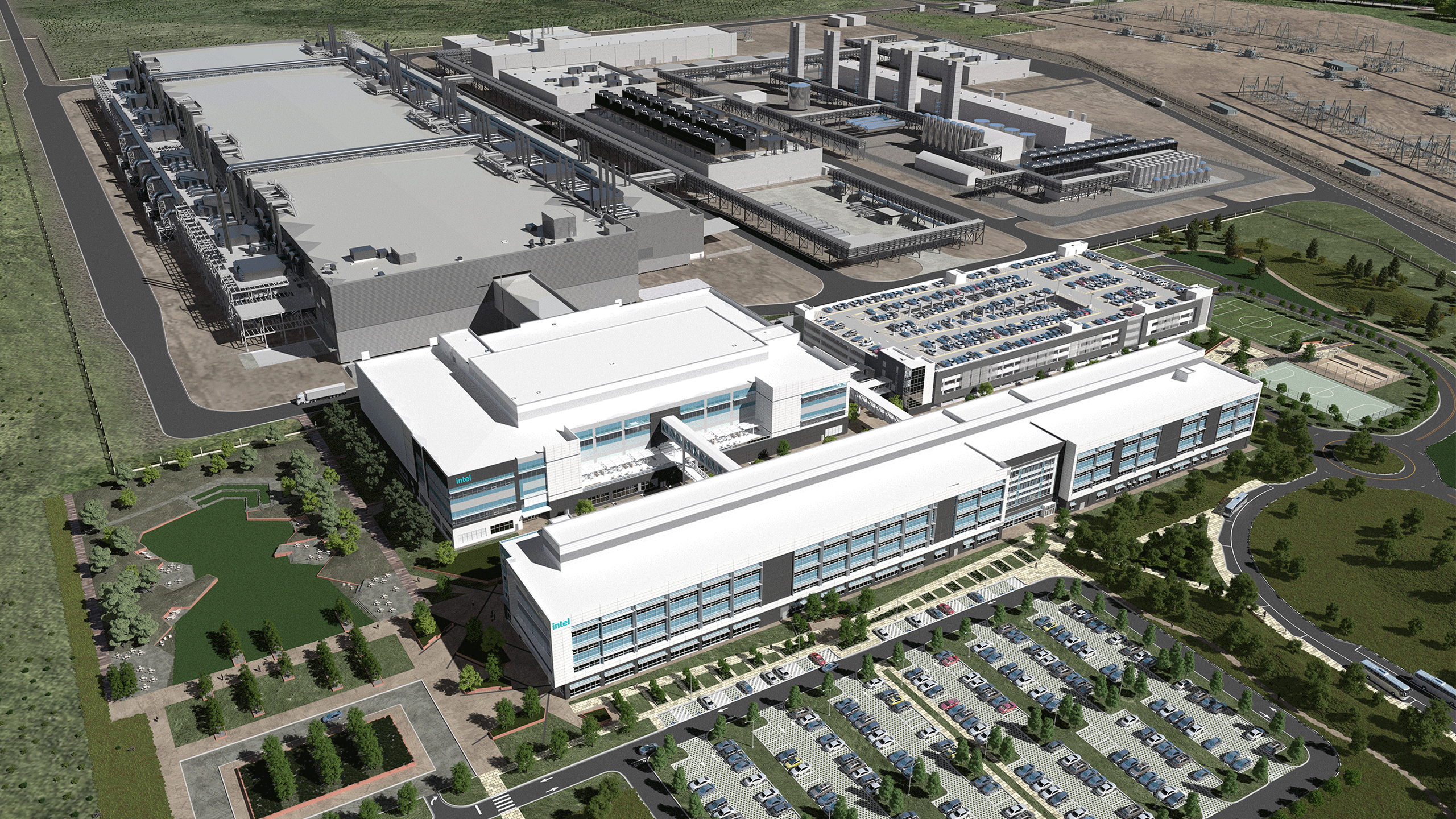
The construction of Intel's Fab 29 module 1 and module 2 near Magdeburg, Germany, has been delayed due to pending EU subsidy approval and the necessity to remove black soil to reuse it at a different site, with a new timeline pushing the start to May 2025, reports Volksstimme. The fab could still come online more or less on time in late 2027 – early 2028 if Intel is quick with construction and tool installation. But this could still be an issue for the company.
Initially, construction was slated to begin in the first half of 2023, but was delayed to summer 2024 due to delays with subsidies, which caused Germany's Finance Minister Michael Richter to intervene and ensure Intel got what it needed. However, the EU Competition Authority has not yet approved the subsidy of €9.9 billion for the €30 billion project, causing the delay. Consequently, the topsoil removal has been postponed to May 2025. The state and Intel are adjusting plans accordingly, focusing on infrastructure development and land acquisition to prepare for the delayed construction, the report says.
Intel's Fab 29.1 and Fab 29.2 were planned to begin operations in late 2027, which pointed to very particular fabrication processes, such as Intel's 14A (1.4nm) and 10A (1nm) process nodes. These manufacturing technologies are meant to be used to make very particular products from Intel's roadmap. Intel typically launches new products for client PCs in the second half of the year and ramps its production in the first half of the year. Therefore, Fab 29.1 and Fab 29.2 were meant to make client PC products slated for launch in the second half of 2028, so while Intel has time to ramp up the fab even if is ready in mid-2028, the schedule will be tight. However, the report draws a much more dire picture as it says that Intel now estimates it would take 'four to five years to build the two factories' and 'production would therefore start in 2029 – 2030.'
As it turns out, the future construction site contains high-quality black soil that must be carefully removed and reused, as mandated by law. The state will handle the removal of the top 40 centimeters of soil, amounting to 80,000 truckloads, while Intel is responsible for any additional soil removal beyond this depth. This process is crucial to comply with environmental and building regulations.
Infrastructure development is a significant part of the project too. The city of Magdeburg will build an access road from the B 81 to the Intel site by July 2024. Following this, the state will construct the main access road between Magdeburg and Wanzleben, starting in August 2024, with completion expected by April 2025. This will enable the transport of soil and construction materials.
Land acquisition is ongoing, with the state-owned development company High Tech Park (HTP) purchasing 450 hectares for supplier settlements. The majority of landowners are willing to sell, and the state is offering €25 per square meter, which is significantly above the typical agricultural price.
A public hearing on the plans is scheduled for May 29, addressing 13 objections raised by associations, private individuals, and the municipality of Burgstall. The state remains optimistic that the project will proceed smoothly once EU approval is secured.







